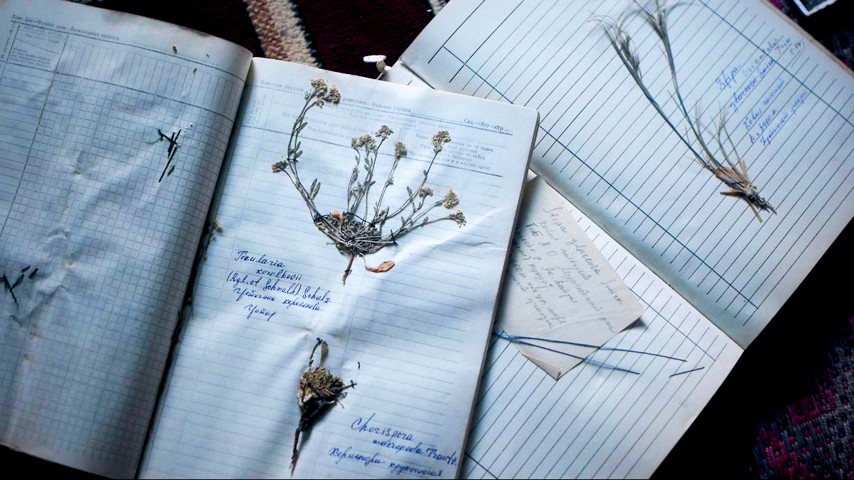Maxime Lacoste-Lebuis and Maude Plante-Husaruk, both filmmakers, were researching their upcoming trip to Central Asia when they first heard a man named Raïmberdi talk about plants. “We stumbled upon a French TV program about [Tajikistan] where Raïmberdi had briefly appeared, and we immediately thought he was a very interesting man and that there was definitely more to his story,” Lacoste-Lebuis told The Atlantic.
Months later, the pair arrived in Tajikistan through the deserted region of the Pamir Mountains. “We started inquiring about the old Kyrgyz man who had built his own hydroelectric power station,” Lacoste-Lebuis said. They didn’t know his name, or even whether he was still living. But they got lucky: A German researcher happened to be traveling through the remote area at the same time. He pointed the filmmakers in the right direction.
Lacoste-Lebuis and Plante-Husaruk’s short documentary, The Botanist, is an elegant, meditative portrait of Raïmberdi, his culture, and his life’s work. Raïmberdi descends from a tribe that lived a nomadic lifestyle in a particularly hostile environment. “Therefore, they were completely dependent on the fauna, flora, and climate of the region,” Plante-Husaruk said.
“Old Kyrgyz people knew how to use plants to make herbal remedies for pains and aches,” Raïmberdi says in the film. “I discovered everything about roots, stems, leaves, flowers, etc., and how to use them … Each plant accumulates organic substances its own way.”
“The Botanist” was directed by Maxime Lacoste-Lebuis and Maude Plante-Husaruk. It is part of The Atlantic Selects, an online showcase of short documentaries from independent creators, curated by The Atlantic. Check it out below…
If you like this idea, be sure to share it with your friends and inspire someone you know. Anything becomes possible with just a little inspiration…

